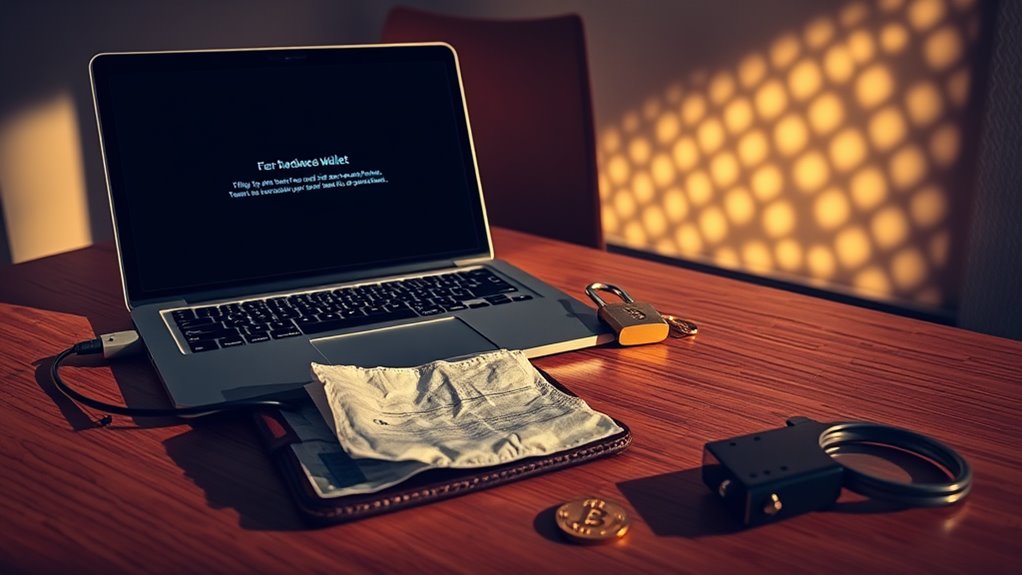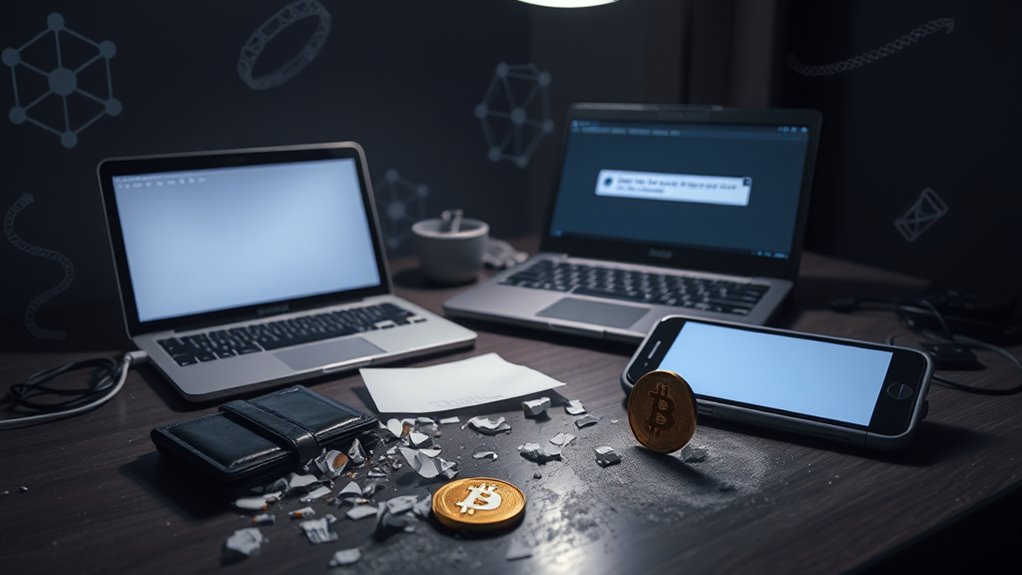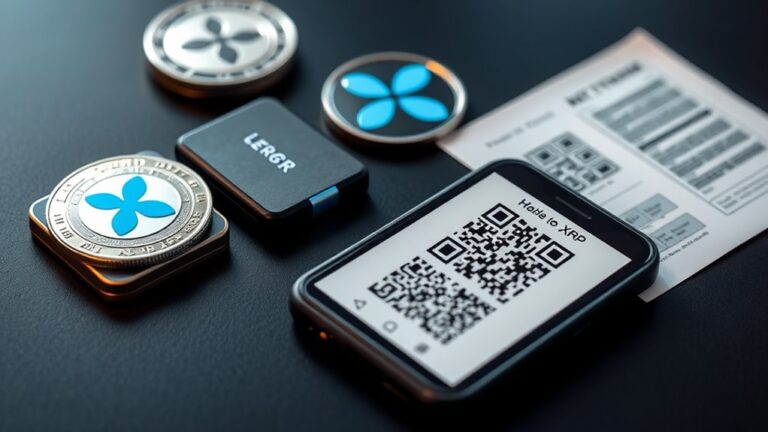Can I Get My Bitcoin Back?
Note: This post may contain affiliate links, and we may earn a commission (with No additional cost for you) if you purchase via our link. See our disclosure for more info. The gold and crypto world is constantly changing. This is not financial, investment, legal, or professional advice. So, please verify the information on the gold and cryptocurrency provider’s websites.
Getting back lost Bitcoin? It's a tough pill to swallow. Recovery methods exist, like using seed phrases, but they're not guaranteed. Many wallets end up as digital dust—worthless. High fees and scammers complicate things. Even “professional” services barely succeed. Plus, hacking and hardware failures can snatch away any glimmer of hope. It's all pretty bleak. But if you're hungry for the nitty-gritty on what recovery really looks like, there's more to uncover.

Can anyone really get their Bitcoin back? This question haunts many crypto users, especially when they realize they've lost access to their wallets. There are methods, sure, but the road is bumpy and uncertain.
First off, if you've got your seed phrase tucked away somewhere—maybe in a notebook or on Google Drive—you might be in luck. Wallet apps like Trust Wallet can help you restore your stash, but don't get too comfortable. If you've tossed your hardware wallet, you might need to jump through some hoops to recover it. Good luck trying to reinstall software on a new device.
Then there's the social recovery method. You can split your seed phrases or assign guardians. Sounds easy, right? Well, it's not all sunshine and rainbows. High Ethereum gas fees can make recovery a pricey affair. And if your wallet's empty? Well, 50% of those recovered wallets turn out to be just digital dust. Maintaining the privacy of seed phrases is essential for safeguarding cryptocurrency holdings.
Professional recovery services do exist. Companies like CryptoAssetRecovery.com promise to crack encrypted wallets, but don't hold your breath. Their success rate is a mere 2.5%. Plus, you've got to be wary. Scammers lurk everywhere, ready to take your cash before vanishing into the ether.
Blockchain analysis tools can trace transactions, but they're not miracle workers. They can follow the money, but only if you're lucky. If your funds are stolen, don't expect a fast fix. These tools utilize blockchain analysis to track the movement of cryptocurrencies across various addresses, offering some hope for recovery.
At the end of the day, the risks are real. Cloud backups can be hacked, leaving you with nothing but regret. And if your hardware fails? Well, that could mean permanent loss. Data recovery tools like Recuva or TestDisk might help you scan for deleted wallet files on old devices if you're desperate.
Bitcoin can be a wild ride, but can it really be recovered? The answer isn't simple, and for many, it's a heartbreaking no.
Frequently Asked Questions
What Should I Do if I Lose Access to My Wallet?
Losing access to a wallet? Ouch.
First, try that seed phrase—if you've got it, you might be golden. Enter it right; one mistake, and you're toast.
If that fails, check for backups. You know, the ones you forgot about? Cloud, email—don't be lazy!
Hardware wallets? They can save you, but only if you've got a new one ready to roll.
And, hey, don't even think about calling a pro—they charge a fortune!
Can I Recover Bitcoin Sent to the Wrong Address?
Recovering Bitcoin sent to the wrong address? Well, it's a mixed bag.
If it's a wallet-specific error and you control the private keys, you might have a shot. Exodus users can sweep funds back, but good luck if you're on another platform.
Typo? Sorry, that's usually a dead end. Exchanges might help, but be ready for fees.
Bottom line: double-check those addresses before hitting send. It's a digital minefield out there!
Are There Any Recovery Services for Lost Bitcoin?
Sure, there are recovery services for lost Bitcoin, but here's the kicker: they're not magic.
Companies like Puran Crypto Recovery and KeychainX exist to help, specializing in everything from blockchain tracing to password recovery.
But don't get your hopes up too high. Success is a mixed bag, hinging on your situation.
Got partial passwords or device access? Good. If not, well, good luck with that.
Recovery isn't guaranteed, and it can cost you.
How Can I Prevent Losing My Bitcoin in the Future?
To prevent losing Bitcoin, one must be smart. Seriously, secure those private keys—think hardware wallets, folks.
Seed phrases? Keep them offline, like buried treasure. Regular backups are a must, but don't rely on the cloud; it's a hacker's playground.
Enable two-factor authentication everywhere. Verify addresses before sending—no one likes sending money to a ghost.
Finally, educate yourself. Ignorance isn't bliss; it's a one-way ticket to regret city.
What Legal Actions Can I Take for Stolen Bitcoin?
When dealing with stolen Bitcoin, there are some paths to contemplate.
Reporting to federal agencies like the FTC or SEC can kick-start investigations. Local law enforcement? Definitely a must.
And let's not forget about blockchain analysis tools—they can help trace those slippery funds.
If international waters are involved, bring in the big guns.
Oh, and don't forget to notify exchanges. Freezing assets might just be the lifeline someone needs.













One Comment